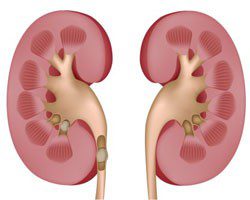Doctors Zone
Journal (JEBH)
Alpha™- Liv Drops
Alpha – Liv Drops Due to high demand from the market, for a formulation in drops for the liver, apart from the syrup already available in the market, Schwabe India developed this product. Introduction The liver plays a key role in metabolism. It has anabolic and catabolic, exocrine and endocrine functions. The liver is a blood reservoir, filter and store of different substances (e.g. glycogen, vitamins). It is the site of serum protein (e.g. albumin, prothrombin, fibrinogen) and enzyme synthesis. Metabolic processes (e.g. bilirubin, hormone, carbohydrate and lipid turnover) and the removal of toxic products are important liver functions. 1 Hepatotoxins (e.g. alcohol, tetracycline, acetaminophen, fungal toxins, and anabolic steroids) can cause specific damage to liver cells. Toxic hepatitis may be clinically silent or severe enough to lead to the rapid development of hepatic failure. Clinical features include hepatomegaly, enzyme abnormalities, fever, abdominal pain, anorexia, nausea, vomiting and weight loss. In patients with underlying cirrhosis, manifestations of portal hypertension may predominate. Aversion to fatty food, abdominal discomfort, nausea and vomiting after meals may be symptoms of 2 cholelithiasis. Jaundice results from accumulation of bilirubin. It has non-hepatic as well as hepatic causes. Hyperbilirubinaemia may be due to abnormalities in the 3 formation, transport, metabolism or excretion of bilirubin. TM Alpha -Liv Drops aids recovery and normalisation of liver functions. Severe liver disease needs specialised treatment. Indications: Slow liver functions, fatty liver, and for supportive treatment of hepatocellular jaundice and toxic liver damage.

News from the world of homeopathy – Schwabe News Volume 2 | Issue 1 | February 2011
Schwabe News Volume 2 | Issue 1 | February 2011
News from the world of homoeopathy
French nobelist takes high dilution research further
Dr. Luc Montagnier, the French virologist who won the Nobel Prize in 2008 for discovering the AIDS virus, has surprised the scientific community with his strong support for homoeopathic medicine. In a remarkable interview published in Science magazine of December 24, 2010, Professor Luc Montagnier, has expressed support for the often maligned and misunderstood medical specialty of homoeopathic medicine.
Montagnier, who is also founder and president of the World Foundation for AIDS Research and Prevention, asserted, “I can’t say that homoeopathy is right in everything. What I can say now is that the high dilutions (used in homoeopathy) are right. High dilutions of something are not nothing. They are water structures which mimic the original molecules.” Here, Montagnier is making reference to his experimental research that confirms one of the controversial features of homoeopathic medicine that uses doses of substances that undergo sequential dilution with vigorous shaking in-between each dilution. Montagnier’s research (and other of many of his colleagues) has verified that electromagnetic signals of the original medicine remains in the water and has dramatic biological effects. Montagnier affirms that these new observations will lead to novel treatments for many common chronic diseases, including but not limited to autism, Alzheimer’s disease, Parkinson’s disease, and multiple sclerosis.
Montagnier’s new research evokes memories one of the most sensational stories in French science, often referred to as the ‘Benveniste affair.’ A highly respected immunologist Dr. Jacques Benveniste., who died in 2004, conducted a study which was replicated in three other university laboratories and that was published in Nature. Benveniste and other researchers used extremely diluted doses of substances that created an effect on a type of white blood cell called basophils. Although Benveniste’s work was supposedly debunked, Montagnier considers Benveniste a “modern Galileo” who was far ahead of his day and time and who was attacked for investigating a medical and scientific subject that orthodoxy had mistakenly overlooked and even demonized.
In this new interview in Science, Montagnier also expressed real concern about the unscientific atmosphere that presently exists on certain unconventional subjects such as homoeopathy, “I am told that some people have reproduced Benveniste’s results, but they are afraid to publish it because of the intellectual terror from people who don’t understand it.”
Montagnier concluded the interview when asked if he is concerned that he is drifting into pseudoscience, he replied adamantly: “No, because it’s not pseudoscience. It’s not quackery. These are real phenomena which deserve further study.”
Source:
- http://www.huffingtonpost.com/dana-ullman/luc-montagnier-homeopathy-taken-seriously_b_814619.html
- http://img2.tapuz.co.il/CommunaFiles/46358327.pdf
Recent Advancements in Basic Homeopathic Research – A Report on Two Significant Publication
In a study conducted at the Experimental Farm of the State University of Santa Catarina, Brazil, researchers investigated the impact of homeopathic treatments on piglets during the nursery phase. The study aimed to determine whether homeopathic agents could reduce fighting behavior, improve growth performance, and affect hematological, metabolic, and oxidative variables. The study included 108 weaned piglets divided into four groups: a negative control group receiving only the basal diet, and three groups receiving different homeopathic treatments at varying dosages.
Journal of Evidence Based Homeopathy Volume: 1, Issue: 1, January - June 2023
Comprehensive articles

Agrohomeopathy – A Review
Short cases

Unmasking the Intricacies: A Pyogenic Abscess Case Report

Lichen Simplex: A Singular Case Study

Ranula Unveiled: A Case Report and Management Approach

Lichen Simplex: A Singular Case Study

A Puzzling Presentation: A Case Report of Jaundice
Recent provings and updated materia medica

Acidum Formicum

Mygale

Thea Chinensis
Materia medica on phytohomeopathy

Chrysarobinum

Sanguinarinum nitricum

Thiosinaminum
Mother tincture

Asparagus Officinalis

Ginkgo Biloba

Rosmarinus Officinalis
Product watch

Alpha™- Liv Drops

Good Morning™ Constipation Drops

Zauber™ Hair Drops
Research News
























